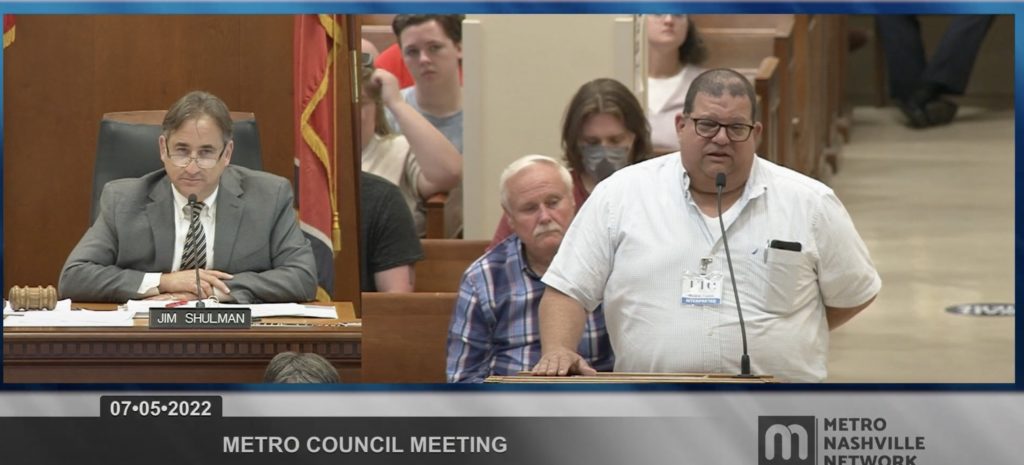
At the start of a recent Metro Council meeting, interpreter Ricardo Castillo announced his services for anyone who speaks Spanish.
“Si hay alguien en esta asamblea que necesite hablar, para que yo les traduzca. Para esto estoy aquí. Yo traduzco todo que sucede aquí.”
Metro Nashville council meetings and more documents are now available in Spanish — the second-most spoken language in the city.
In the past, community organizers and residents have had to interpret for each other in order to communicate in council meetings. Some Nashville departments, like health, have offered translations and interpretations. What’s new is city officials are working to close access gaps in other places.
“We should know that every department, even if you don’t have a copy of each document in every language, you should have a way to get that document— that document translated into that language simply and easily,” says Councilmember Ginny Welsch, the chair of the human services committee.
In the council chambers, an interpreter will translate conversations during public hearing, and there’s a closed captioning system in Spanish.
This change comes after the council’s human services committee reviewed Title VI, which stops discrimination for any activity or program receiving federal money, and realized the city wasn’t removing all barriers so non-English speakers could access the government easier.
So the city funded a Title VI officer and money for the technology, which includes a kit that simultaneously translates meetings (as long as a person is able to interpret) and is converting a Metro Nashville channel to Spanish.
“I can find more ways in which people are shut out than allowed to participate,” Sandra Sepulveda says. She’s currently the only Hispanic councilmember. “Thanks to Councilmember Welsh, who has made a lot of progress through her committee in getting some translation services for council. But, you know, a lot of our mailings that go out aren’t translated. We’re addressing Spanish more than anything. But we still have a big community of Arabic speakers that we aren’t properly engaging.”
Right now, the city is integrating languages one at a time. Next up will be the third-most spoken language Arabic.
The city doesn’t have a comprehensive rule to determine when government resources have to be provided in other languages. In fact, in 2008, a former councilmember led a failed referendum to make English the only language Metro business could be done in.
Nashville has been looking to other cities for guidance on how to implement the changes. Although several of the efforts were funded this past budget season, it’ll be up to the mayor and council if it continues to get funding in future fiscal years.

